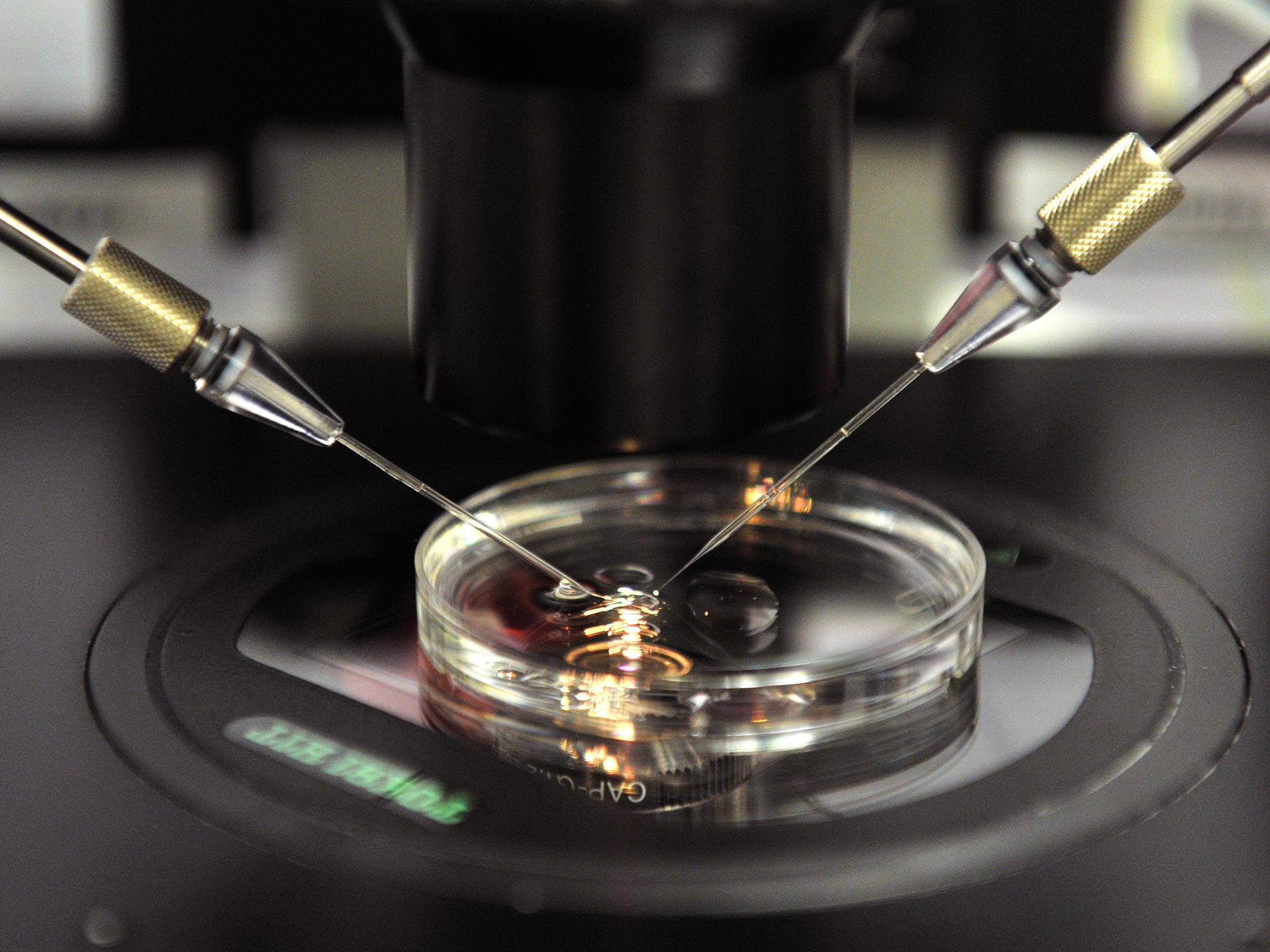Sperm created in lab in world first, French company claims
The breakthrough could help thousands of infertile men

Your support helps us to tell the story
From reproductive rights to climate change to Big Tech, The Independent is on the ground when the story is developing. Whether it's investigating the financials of Elon Musk's pro-Trump PAC or producing our latest documentary, 'The A Word', which shines a light on the American women fighting for reproductive rights, we know how important it is to parse out the facts from the messaging.
At such a critical moment in US history, we need reporters on the ground. Your donation allows us to keep sending journalists to speak to both sides of the story.
The Independent is trusted by Americans across the entire political spectrum. And unlike many other quality news outlets, we choose not to lock Americans out of our reporting and analysis with paywalls. We believe quality journalism should be available to everyone, paid for by those who can afford it.
Your support makes all the difference.Sperm has been created in a laboratory for the first time, French researchers have claimed, raising hopes of treatment for infertile men.
A company based in in Lyon said they had created human sperm in vitro, a feat which would be a world first.
Isabelle Cuoc, the CEO of the Kallistem laboratory, said: “Kallistem is addressing a major issue whose impacts are felt worldwide: the treatment of male infertility.
“Our team is the first in the world to have developed the technology required to obtain fully formed spermatozoa [sperm] in vitro with sufficient yield for IVF.”
Kallistem said it has taken male fertility tissue, known as spermatogonia, and turned it into mature sperm in test tubes. This complex process usually takes 72 days.
This would benefit tens of thousands of infertile men who cannot develop their own sperm.
But until the publication of a patent on 23 June for the process, called Artisem, the company is refusing to disseminate their results.
The lack of scientific findings published in a peer-reviewed journal has led to experts from around the world calling for caution to be exercised while further work is conducted.
Professor Allan Pacey, an expert in male fertility at the University of Sheffield, said he remained sceptical until the research has reviewed.
“Claims like this can often cause heartache for infertile couples who see them as hope only to have their hopes dashed later when it doesn’t translate into an available procedure,” he told the Daily Mail.
“"If it works, this method opens great prospects," Professor Nathalie Rives, director of the centre for assisted reproduction at the University Hospital of Rouen, told Le Figaro newspaper.
The private male infertility company hopes to begin human clinical trials within two years and is crowdsourcing funds to make this a reality.
Eventually the lab hopes to treat 50,000 men a year, in a market that is estimated to be worth £1.7bn a year.
Join our commenting forum
Join thought-provoking conversations, follow other Independent readers and see their replies
Comments